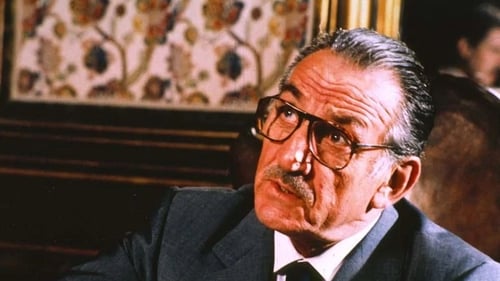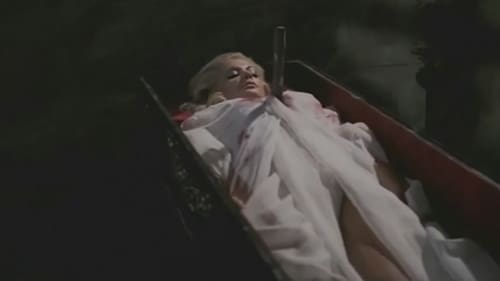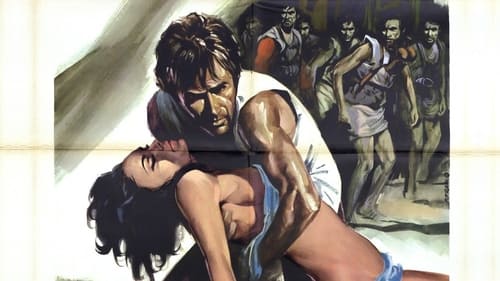
Conductor
En la primavera de 1982, el General Dalla Chiesa podría haberse retirado. Su implacable persecución contra el terrorismo lo había convertido en el hombre más popular de Italia. Pero una nueva guerra había empezado en Palermo: un nuevo enfrentamiento entre los clanes mafiosos había producido una ola de asesinatos tanto de miembros de las distintas familias como de jueces, magistrados y oficiales de policía.

Original Music Composer
En la primavera de 1982, el General Dalla Chiesa podría haberse retirado. Su implacable persecución contra el terrorismo lo había convertido en el hombre más popular de Italia. Pero una nueva guerra había empezado en Palermo: un nuevo enfrentamiento entre los clanes mafiosos había producido una ola de asesinatos tanto de miembros de las distintas familias como de jueces, magistrados y oficiales de policía.

Music
Performance shot in 1977, in which emblematic actor Carmelo Bene, in the charming reconstruction of the ruins of a theater on fire accompanied by the disturbing notes of Vittorio Gelmetti, reads four poems of the Twentieth Century russian poets Vladimir Majakovskij, Boris Pasternak, Aleksandr Blok and Sergej Esènin.

Music
Una pequeña aldea rural española se ve amenazada por la presencia de un vampiro.

Original Music Composer
A documentary about the birth of the palestinian liberation movement Al Fatah, lead by the young Yasser Arafat.

Sound

Original Music Composer
An island has been decimated by a volcanic eruption and the few survivors escape to a nearby island. Led by Rutolo, they know that their new home is equally susceptible to such a catastrophe via its own volcano, but they are unable to convince the current inhabitants of Island #2 to flee with them to a mainland.

Music Supervisor
Barbara (Anita Sanders) se pasea por Londres, mientras es seguida por un admirador de tez morena, quien siempre fantasea con mantener relaciones con ella. Paolo, el marido de Barbara, la ha dejado abandonada en el parque...

Sound Engineer
Barbara (Anita Sanders) se pasea por Londres, mientras es seguida por un admirador de tez morena, quien siempre fantasea con mantener relaciones con ella. Paolo, el marido de Barbara, la ha dejado abandonada en el parque...

Music
A Brechtian thriller about an intellectual's transformation into a street-fighting man.

Music
Repaso de la historia de la Mafia en Italia a partir de la II Guerra Mundial (1939-1945) así como de la trayectoria de sus líderes e integrantes en Estados Unidos. (FILMAFFINITY)

Music
Hermitage, defined by Bene as "a rehearsal for lenses", beyond any literal rendition - its narrative trace comes from one of his anti-novels, Credito Italiano V.E.R.D.I - displays his immediate attitude to thinking a cinematic language completely based on actor's movements and actions, and more specifically, on his presence and his schemes. Camouflaged or naked, still or moving, his body seems to play and be played at the same time, shifted by objective and subjective tensions, both metaphorically and visually speaking.

Himself
A happening that lasted 12 hours in the Feltrinelli bookshop in Rome. The soundtrack (background weaning) was put together by the crowd, recomposing, without listening to them, pieces of magnetic film that had been distributed around. There are almost all the painters, directors and actors of the Roman avant-garde.

In 1966, Bene presented The Pink and the Black, his successful theatrical adaptation of Matthew Gregory Lewis’ lurid Gothic novel from 1796. Experimental filmmaker Paolo Brunatto filmed some of the play’s rehearsals in a Rome apartment (also frequented also by the Living Theatre). Bene's artistry is encapsulated in one sentence: “One cannot continue to prostitute the idea of theatre, which stands only for a magical, brutal link with reality."

Music
Leonardi's film about the Living Theatre is less concerned with a straight documentary presentation of the exile theatre group from New York, but rather is concerned with the specific atmospheric factor which is indicated by their name, and which constitutes the highly suggestive effect of their playing. Cutting, for Leonardi, is the most decisive aesthetic device. The result is a wonderfully composed furioso of pictures. The hand-held camera catches rehearsals, conversations without sound, bits of theatre and daily life actions (which, for Living Theatre people, is very often intermixed).











